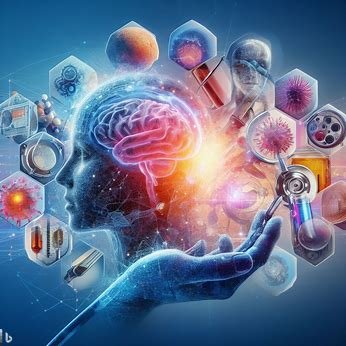Psilocybin Therapy: A New Frontier for Mental Health
Mental health disorders such as depression and anxiety affect millions of people worldwide, and often impair their quality of life and well-being. While conventional treatments such as antidepressants and psychotherapy can help some patients, they are not effective for everyone and may have unwanted side effects. Moreover, many people who suffer from these conditions do not have access to adequate care or face stigma and discrimination.
In recent years, a new approach to treating mental health disorders has emerged: psychedelic-assisted therapy. This involves using substances that alter the perception of reality, such as psilocybin, the active ingredient in magic mushrooms, in combination with psychological support from trained therapists. Unlike recreational use, psychedelic-assisted therapy is done in a safe and controlled environment, with careful preparation and integration sessions.
Several clinical trials have shown that psilocybin therapy can produce lasting improvements in symptoms of depression and anxiety, as well as enhance well-being, spirituality, and creativity. Psilocybin works by stimulating serotonin receptors in the brain, which modulate mood, cognition, and perception. Psilocybin also induces a state of altered consciousness, which can facilitate psychological insights, emotional processing, and positive changes in perspective and behavior.
One of the most remarkable features of psilocybin therapy is that it can have lasting effects after a single or few sessions, unlike conventional treatments that require long-term use or maintenance. Psilocybin also has a favorable safety profile, with low potential for abuse or addiction, and minimal physical side effects.
However, psilocybin therapy is not yet widely available or legal in most countries. Despite the growing evidence of its benefits, psilocybin remains a Schedule I substance under the United Nations Convention on Psychotropic Substances, which means it is considered to have no medical value and high potential for abuse. This classification hinders scientific research and clinical practice, and prevents many people from accessing this promising treatment.
Advocates for psychedelic-assisted therapy are calling for a change in the legal status of psilocybin and other psychedelics, to allow for more research and regulation. They argue that these substances have immense potential to improve mental health and well-being, and that people should have the right to choose their own mode of healing. They also emphasize the need for ethical standards, professional training, and public education to ensure the safety and quality of psychedelic-assisted therapy.
Psilocybin therapy is not a magic bullet or a cure-all for mental health disorders. It is not suitable for everyone, and it requires careful screening, preparation, guidance, and integration. It is also not a substitute for other forms of treatment or support, but rather a complementary option that can enhance existing therapies. However, psilocybin therapy offers a new paradigm for mental health care, one that is based on personal experience, holistic healing, and human potential.





